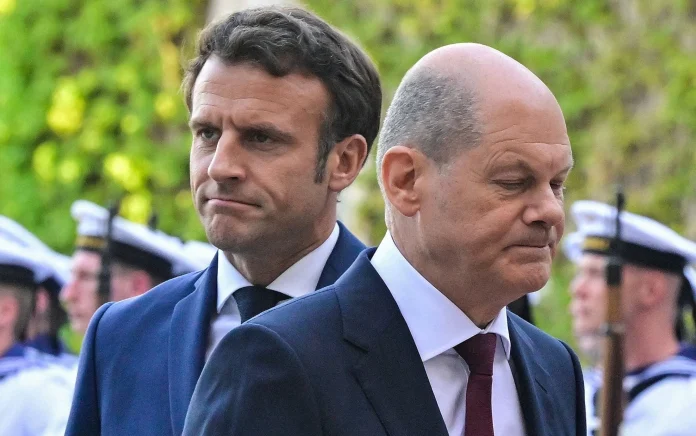Tensions between German leader Olaf Scholz and French President Emmanuel Macron could damage the European Union’s position on the Houthis, GB News reports.
The reason for the deterioration in relations has been energy financing issues, as well as the states’ stance on China and Ukraine.
On Monday, Scholz issued a statement saying EU member states were not sending enough aid to Ukraine, in what appeared to be a jab at Macron, whose level of support lags far behind that of Berlin.
If the deterioration in relations between France and Germany continues, the EU’s joint action in the Red Sea could be jeopardised. Diplomats fear the spat could prevent Berlin from persuading Paris to back an expansion of the French-led EU anti-piracy mission around the Strait of Hormuz.
Germany has offered to send a naval vessel with anti-aircraft missiles to put the plan into action, but there has been no response from France so far. An EU diplomat told The Telegraph:
The relationship isn’t really working at the moment. The Germans think the French are not doing enough on Ukraine, despite talking a big game, and they are right.
Meanwhile, Brussels faces mounting pressure to respond to Iran-backed rebels in Yemen who are attacking ships in the Red Sea. It has not yet been decided whether the EU mission will be defencive or take on the Houthi rebels directly, according to GB News.
Last week, the UK and US air forces carried out targeted strikes on military installations in Yemen in response to “reckless actions” by Houthi rebels in the region. The US air force said the strikes hit more than 60 targets in 16 locations. The rebels, who called the Western response “barbaric”, had earlier launched a series of attacks on shipping routes in the Red Sea in what they said was a show of support for Palestine and the Hamas group.
Major shipping companies have taken longer routes to avoid the rebels, driving up shipping costs around the world and driving up the price of goods.
The UK and US strikes received political support from EU members Germany, the Netherlands and Denmark. However, France, as well as Italy and Spain, have not signed a joint statement in support of the attacks, GB News reports.
Yemen’s SABA news agency reported this morning that the overnight strikes killed five people and wounded six others.
The situation in the Red Sea has further exposed the problem of lack of unanimity in decision-making in the EU council.
